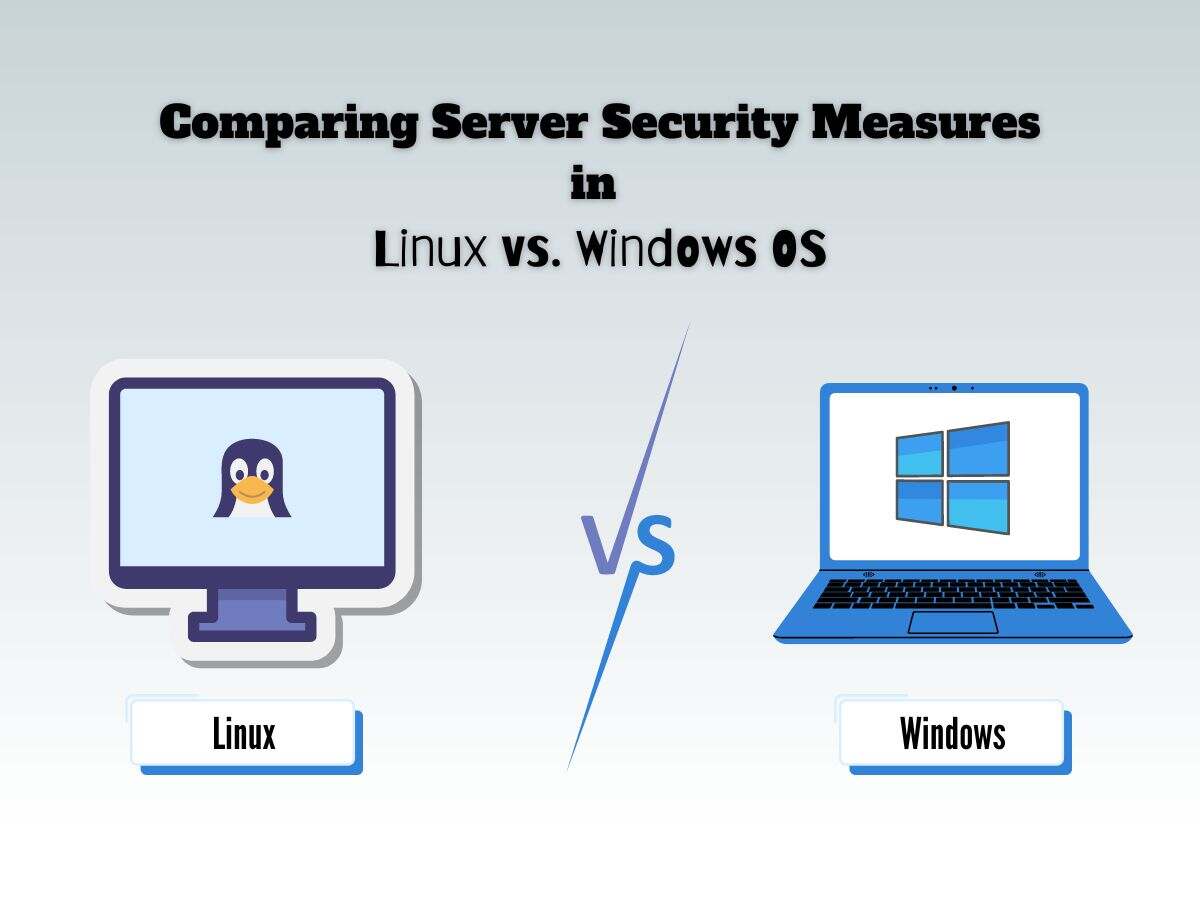
Comparing Server Security Measures in Linux vs. Windows OS
In today’s digital age, the security of servers is paramount. Businesses look for operating systems (OS) that offer robust security protocols to protect their data from cyber threats. Linux vs Windows Os are the two most commonly used operating systems for servers. Both have different approaches to server security, and understanding these differences is crucial.
In this blog, we’ll compare server security measures in Linux vs Windows OS, providing a clearer picture of how they guard your data.
Understanding Server Security in Linux
Traditionally, Linux has held a reputation as a more secure OS. Here’s why:
User Privileges and Root Access
One of Linux’s significant security advantages is its handling of user permissions. Normal users on a Linux server have limited system access. Administrative tasks require a ‘root’ (superuser) account, aiding in reducing system vulnerability to a security breach.
Open-Source Community
Linux’s open-source nature means its source code is publicly accessible, creating a large, active community of developers continually working to identify and fix security loopholes. This collaborative approach enhances Linux security.
IPTables
IPTables is a user-space utility program that allows a system administrator to configure the firewall security of a Linux server—providing an extra layer of protection against unauthorized access.
Delving into Server Security in Windows
Although often criticized for falling short compared to Linux, Windows Server has significantly improved its security measures recently.
User Account Control (UAC)
Similar to Linux’s root access, Windows Server uses User Account Control (UAC) to limit the privileges of user accounts, providing an extra layer of security against unauthorized changes to the server.
BitLocker
Windows Server also includes BitLocker, which encrypts hard drives and prevents unauthorized data access, securing data even on lost or stolen servers.
Regular Updates
Microsoft releases regular security updates and patches for its operating systems, continuously fixing vulnerabilities and threats.
Concluding Thoughts: Linux vs. Windows Server Security
Both Linux and Windows servers provide robust security protocols, albeit with different approaches.
Linux, with its clear separation of user and root permissions and active community, offers a secure environment for running servers. Meanwhile, Windows Server, with its recently upgraded security measures like UAC, Windows Defender, and BitLocker, is catching up.
Your choice depends on your specific needs and familiarity with the operating system. A properly configured and managed server, whether Linux or Windows, can provide the solid security base you need in your technical infrastructure.







